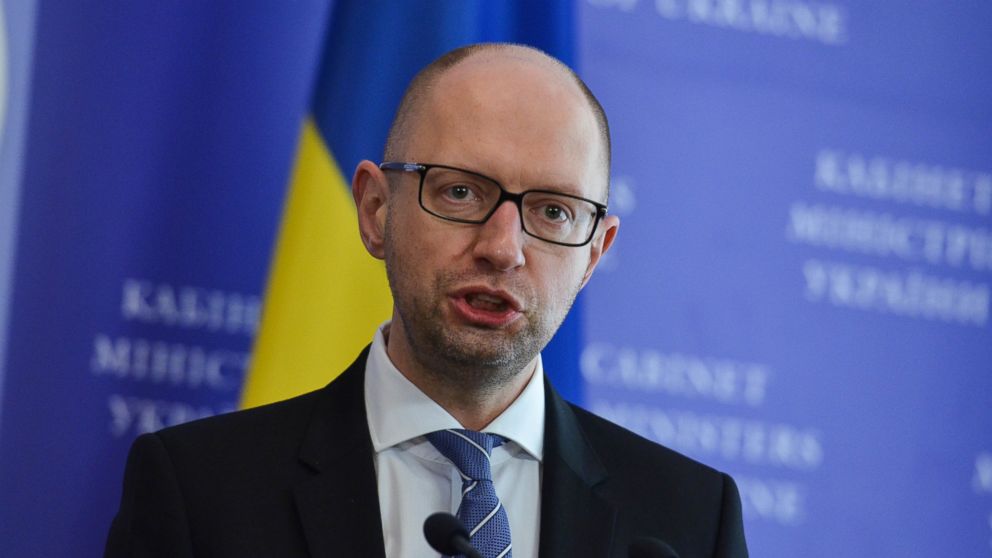Ukraine in Political Crisis as Government Faces No-Confidence Vote
Ukrainian prime minister could be ousted this afternoon.

MOSCOW — -- Ukraine is embroiled in a serious political crisis, with its prime minister facing a vote of no confidence that could lead to the government's collapse and snap elections.
In Kiev, Prime Minister Arsenii Yatsenyuk will deliver a report on his government's performance to Ukraine's parliament in the afternoon after which a vote of confidence can be held. Two of the main parties in Ukraine's ruling coalition have promised to condemn the government's work and to press for Yatsenyuk's resignation.
Earlier in the day, the party of the country’s president, Petro Poroshenko, announced that it will declare the government's work "unsatisfactory," significantly raising the possibility that a vote of no confidence will pass.
It was unclear how close Yatsenyuk's opponents are to obtaining the required 226 votes to remove him. Serhiy Leshchenko, a leading MP from Poroshenko's party, told ABC that so far they had gathered 110 votes, enough to force a no-confidence vote and said he was confident they were close to finding the rest.
Regardless of whether Yatsenyuk is forced out today, the discord within the governing coalition and the government's bottoming approval ratings leaves Ukraine in deep political trouble.
Support for Yatsenyuk and his government has collapsed as Ukraine has slid into economic crisis, with living standards plummeting to levels not seen since the early 2000s in a country that was already among the poorest in Europe. Yatsenyuk, a long-time politician who heads a pro-Western party, was appointed following Ukraine's Maidan revolution in 2014.
But in the two years since coming to power, the government has been criticized for failing to implement economic reforms efficiently or to clean up chronic corruption among officials, including, some allege, Yatsenyuk himself.
"We have a political crisis on our hands," Leschenko said by phone. "We no longer can ignore corruption allegations of PM, ministers and oligarchs and presidential cronies who are preventing our reform agenda."
With the country still mired in a conflict with Russian-backed separatists in eastern Ukraine, the political upheaval could tip Ukraine into full-blown crisis.
The fall of the government would likely cause further economic damage and could jam the already severely stalled peace process for the conflict between Kiev and rebel groups armed by Moscow. Fighting has largely halted since a ceasefire agreement was reached in Minsk a year ago, though periodic shelling continues in some places.
Fitful talks between Kiev, Russia and the separatists to establish a more permanent political solution have been on-going, though with small progress. But a new round of elections would likely pause any potential negotiations and any new government elected might well be more opposed to the compromises with the rebels required by the agreement.
The Minsk agreement calls for Ukraine's eastern borders to be returned to its control and for the separatist regions to be granted "special status.”
But many of the terms that would grant greater autonomy to the pro-Russian rebels have proved unacceptable to Ukrainian nationalists in the parliament. The rebels have accused Kiev of failing to honor its sides of the agreement so far and have threatened to hold their own elections if their demands are not met.
Ukraine has been in economic and political turmoil since its revolution began in 2013 that led to the toppling of the pro-Moscow president, Viktor Yanukovych. The civil war in the east fueled by Moscow has left the country’s economy in a mess, with the World Bank predicting a 1 percent growth rate this year, following a 12 percent contraction in 2015.




